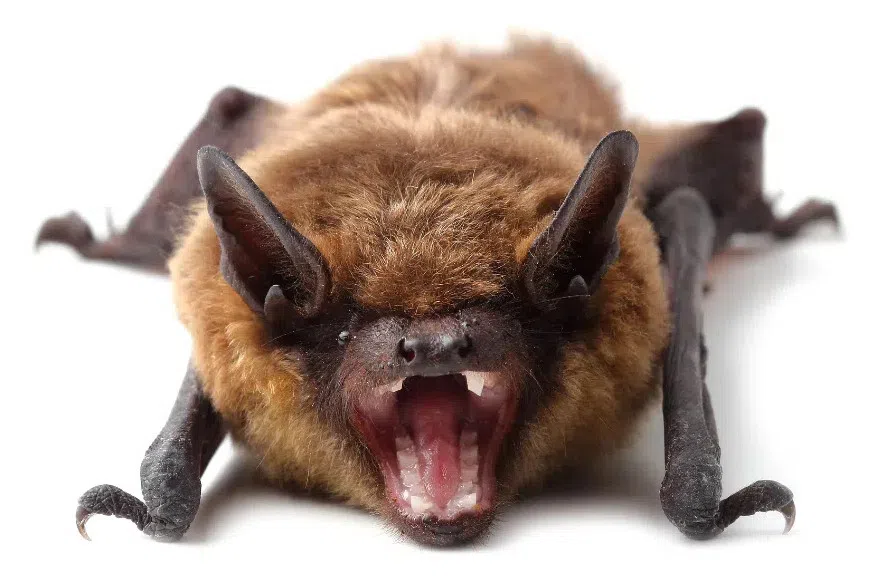Health officials say Saskatoon has seen a sharp rise in bat encounters this year, and several of those bats have tested positive for rabies.
Dr. Simon Kapaj, medical health officer with the Saskatchewan Health Authority, said the increase has become a concern as more residents report bites, scratches or close encounters.
Read more:
- Martensville resident receives rabies vaccination after bat bites
- Health officials warn more people are being bitten by bats across Sask.
- Sask. recognizes World Rabies Day after dead bat found to be carrying virus in Warman
“If individuals are bitten or scratched by a bat, they’re putting their life at risk. Rabies is deadly, and there’s no treatment,” Kapaj said.
The warning comes after public health officials confirmed multiple rabid bats within city limits and nearby communities in recent months. Kapaj said calls about bat encounters have risen steadily since last year, with more assessments and rabies shots being administered than usual.
He said the trend has been most noticeable in Saskatoon, where both the bat and human populations are the largest, but smaller towns have also reported cases.
Even minor or unnoticeable contact can pose a risk.
Kapaj said that bat bites are often so small that they may go unseen, especially if the animal brushes against someone outdoors or enters a home while people are sleeping.
“Bat bites or scratches are very small and might not be obvious,” he said. “It’s important to get checked even if you’re unsure.”
Public health officials advise anyone who thinks they’ve been bitten or scratched to seek medical attention within 48 hours. Rabies shots are effective if given quickly, but once symptoms appear, the infection is almost always fatal.
Kapaj said Saskatchewan hasn’t had a confirmed human rabies case in more than four decades, a record he attributes to strong prevention programs and a swift public response.
“If rabies shots are received on time, they’re preventative and that’s why we haven’t seen a human case here in over four decades,” he said.
While the rabies risk for the general public remains low, Kapaj said that people who work closely with animals, including veterinarians and lab staff, should consider pre-exposure vaccination.
Travellers heading to countries where rabies is more common are also advised to take precautions.
He reminded residents to call local public health if a bat is found indoors, particularly in rooms where children are sleeping or are unable to describe what happened.
“Rabies is 100 per cent preventable with the right care,” Kapaj said. “But it depends on people acting quickly when they come into contact with a bat.”
— with files from Brent Bosker, 650 CKOM
Read more:











